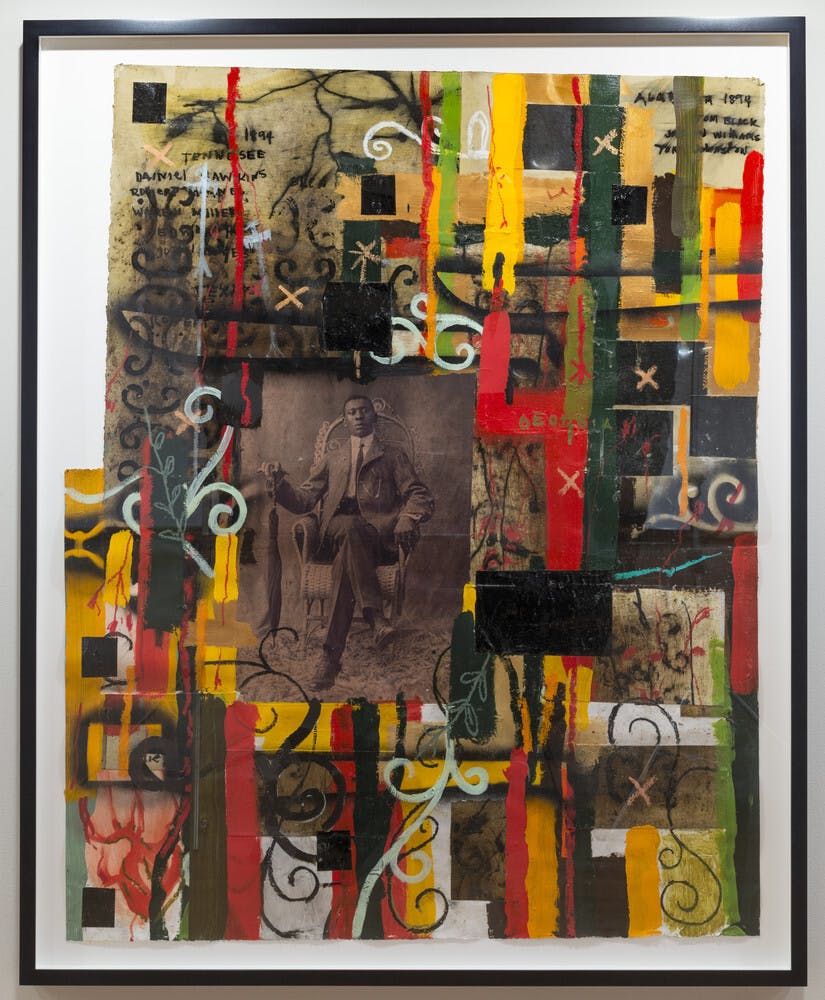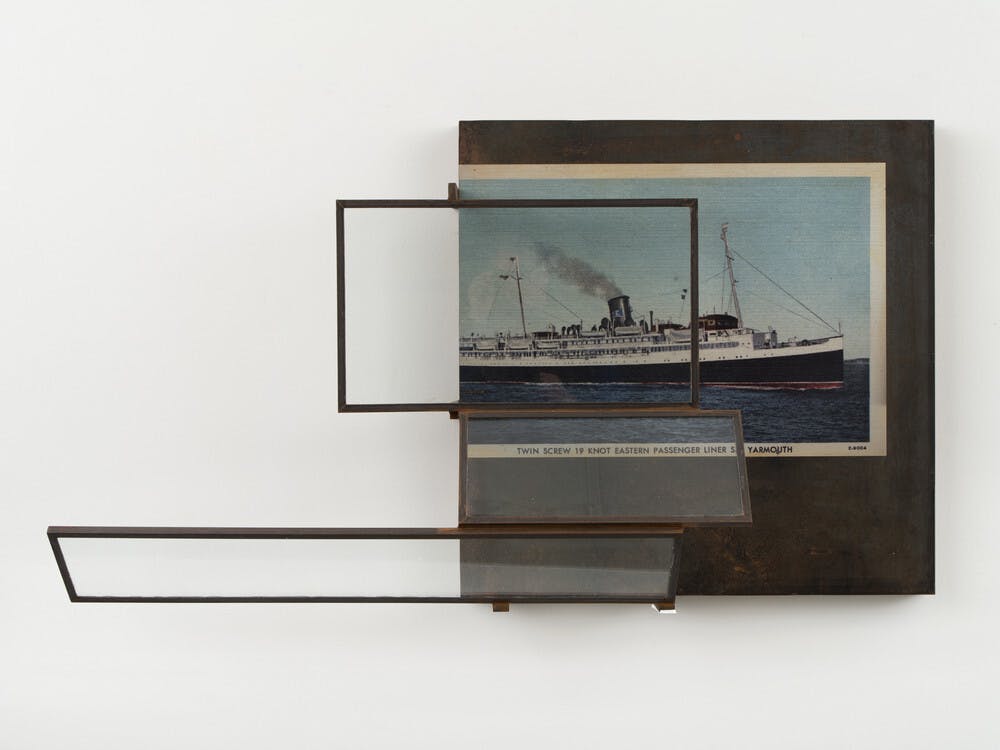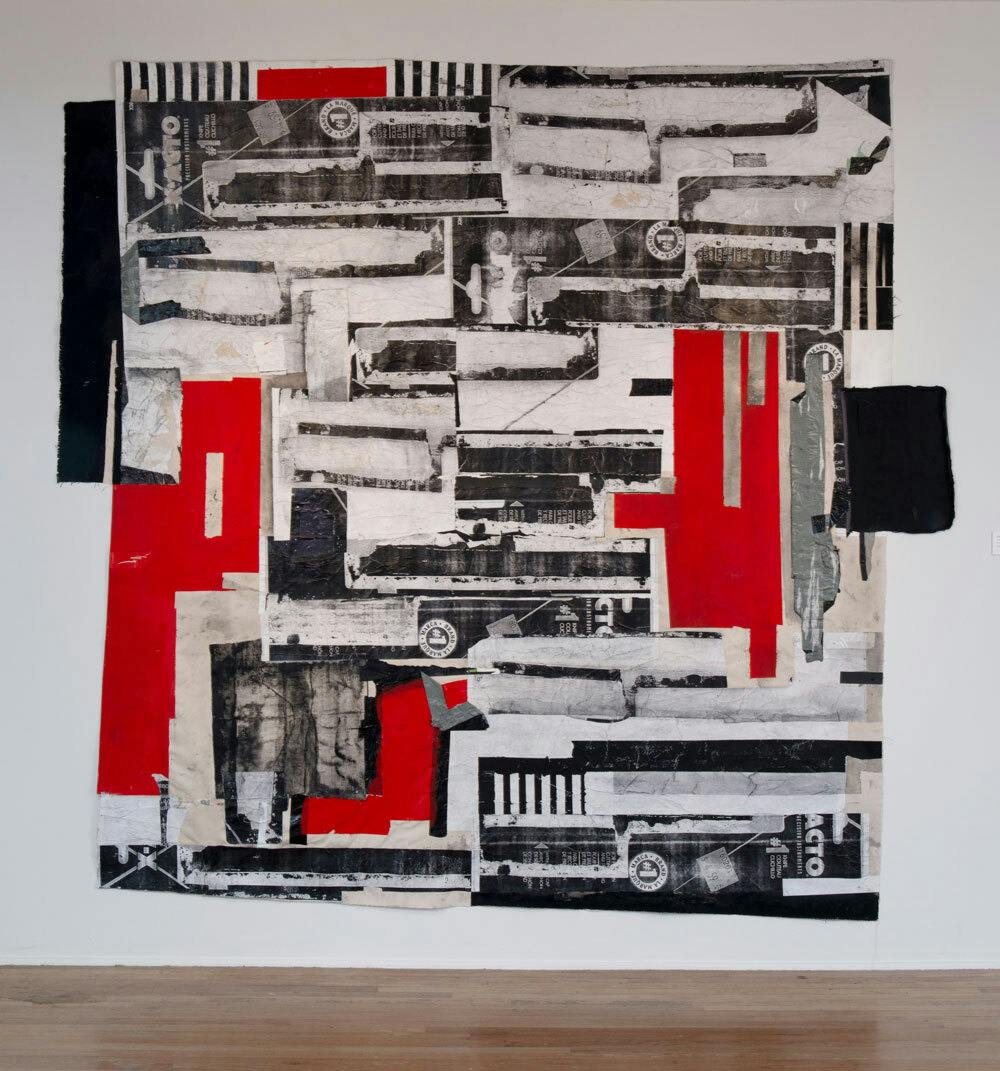Radcliffe Bailey
(1968–2023)Radcliffe Bailey layers imagery, culturally specific materials, and text to investigate themes of ancestry, race, migration, and memory.
Biography
Growing up in Atlanta, he frequented the High Museum of Art, where his mother, a schoolteacher, introduced him to artists like James Van Der Zee and Jacob Lawrence. She encouraged his interest in art, giving him pencils and paper for drawing. As an undergraduate student, he found himself pulled toward large, outdoor sculptures and worked as an assistant to Melvin Edwards on an installation. He saw his art as an opportunity to honor his family and drew inspiration from a family photo album given to him by his grandmother. As the artist says, “I’ve always been concerned that art history—which we like to say is ‘art mystery’—never really talks about all people, just a certain group of people. It was always limiting, and I was always curious about what [those other groups] were doing.”
Since his initial training as a sculptor, Bailey has experimented with painting and mixed media, though he continues to utilize a sculptural approach. He often incorporates found objects from his past into his compositions, such as tintypes of his ancestors, piano keys, and Georgia red clay. His inspiration frequently stems from his upbringing and life in Southern United States, specifically in Atlanta and its church culture and Civil War roads and gravestones remnants. Bringing together individual experience and collective consciousness, Bailey infuses historical materials with present-day currency.
Bailey earned his BFA from Atlanta College of Art. His work is included in numerous collections, such as those of the Metropolitan Museum of Art, Art Institute of Chicago, and Smithsonian Institution. His work first entered the Studio Museum’s collection in 2015.
Exhibitions and Events
Radcliffe Bailey
(1968–2023)Radcliffe Bailey layers imagery, culturally specific materials, and text to investigate themes of ancestry, race, migration, and memory.
Mason Dixon, 2009
Biography
Growing up in Atlanta, he frequented the High Museum of Art, where his mother, a schoolteacher, introduced him to artists like James Van Der Zee and Jacob Lawrence. She encouraged his interest in art, giving him pencils and paper for drawing. As an undergraduate student, he found himself pulled toward large, outdoor sculptures and worked as an assistant to Melvin Edwards on an installation. He saw his art as an opportunity to honor his family and drew inspiration from a family photo album given to him by his grandmother. As the artist says, “I’ve always been concerned that art history—which we like to say is ‘art mystery’—never really talks about all people, just a certain group of people. It was always limiting, and I was always curious about what [those other groups] were doing.”
Since his initial training as a sculptor, Bailey has experimented with painting and mixed media, though he continues to utilize a sculptural approach. He often incorporates found objects from his past into his compositions, such as tintypes of his ancestors, piano keys, and Georgia red clay. His inspiration frequently stems from his upbringing and life in Southern United States, specifically in Atlanta and its church culture and Civil War roads and gravestones remnants. Bringing together individual experience and collective consciousness, Bailey infuses historical materials with present-day currency.
Bailey earned his BFA from Atlanta College of Art. His work is included in numerous collections, such as those of the Metropolitan Museum of Art, Art Institute of Chicago, and Smithsonian Institution. His work first entered the Studio Museum’s collection in 2015.



